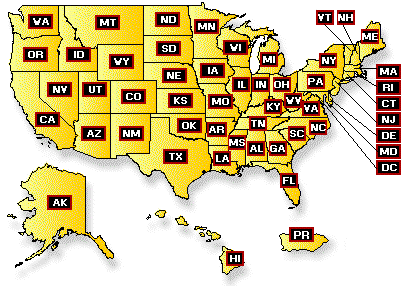State Laws and Retirement Asset Protection
The last battle to protect retirement assets from judgment creditors is waged at the state level. Although a creditor may not be able to directly get to the funds if they are protected under the Employee Retirement Income Security Act (ERISA), the creditor may still attempt to attach, levy, execute, or garnish any amounts received by a plan participant. The only thing that can possibly stop a creditor from doing so is a state law. (Of course, some types of creditors cannot be prevented from getting access to these funds at all.)
 |
Did You Know?
States are generally barred by federal law from taxing retirement income of its former residents or nonresidents who earned income in the state. State taxation of retirement income is limited to the state where the retiree resides. This treatment applies whether the retirement payments are made to a retired employee or to a retired partner.
|
|
State laws protecting retirement assets from creditors come in the following two varieties:
- state retirement plan exemption statutes
- general wage garnishment statutes that operate similarly to state exemptions (although with garnishment statutes only a percentage of a distribution may be exempt)
 |
Tip
Asset protection consultants suggest many convoluted ways to protect your assets. As in other areas, the best suggestion is usually the one that is the simplest.
One of the important considerations to make in the retirement planning process is where to retire. In deciding where to retire, one of the factors to consider is whether a state's laws (including its asset protection laws) are favorable to retirees. Businesses looking to locate operations in a particular state weigh such factors, so why shouldn't you?
|
|
To find out what protections your retirement plan assets may have, click on your state on the map below.

© 2025 Wolters Kluwer. All Rights Reserved.


